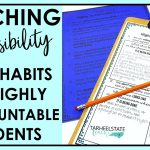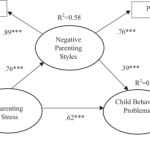Table of contents
Teaching Children About Consent and Healthy Relationships: A Primer for Young Minds
In today’s world, teaching children about consent and healthy relationships is imperative. In the past, these topics may have been viewed as too “adult” for young minds, but the reality is that young people need to learn about consent and healthy relationships now more than ever. It is our responsibility as adults to help them understand what these concepts are and why they’re important to their development.
What is Consent?
At its core, consent is the concept of mutual agreement. It involves making choices, understanding consequences, and having the capacity to consider other options. On a practical level, for children, this means understanding that they have a right to say “no” to activities and other requests without fear of repercussions. It also means understanding that their “no” should be respected, regardless of the potential rewards.
Why is Teaching Consent Important?
Teaching children about consent at a young age helps them understand that their bodies, choices, and actions have an impact on others. Learning the importance of consent fosters an atmosphere of mutual respect, autonomy, and positive communication. Children who understand consent are more likely to be peaceful and caring in their relationships, both with peers and with adults, now and in the future.
What is a Healthy Relationship?
A healthy relationship is one in which both parties respect each other and recognize each other’s individual boundaries. This means understanding that no one should be coerced into activities they aren’t comfortable with, and that it is OK, even important, to disagree. Healthy relationships involve mutual understanding, open communication, and trust.
How to Teach Consent and Healthy Relationships
There are many ways to teach children about consent and healthy relationships. Here are some tips to get you started:
- Model consent and healthy relationships: Show young people what these concepts look like in practice by introducing them to scenarios in which consent and relationships that respect individual boundaries are being expressed.
- Talk about consent: Speak openly about consent, healthy relationships, and their importance. Encourage children to ask questions and voice their concerns.
- Create a safe space to talk: Make a comfortable, open space for children to talk about consent, relationships, and other issues they may be dealing with. Encourage them to speak up and respect their opinion.
- Empower children:Remind children that they have the right to say “no” to any activity they are uncomfortable with, and that they should never feel forced to do anything they don’t want to do.
- Listen:Listen to what your children are saying. Don’t invalidate their concerns or opinions, and encourage open communication.
By teaching children these concepts now, we can help them understand the importance of respect and healthy relationships in their personal development. Teaching children about consent and healthy relationships is an essential part of parenting, and it can help children establish strong, healthy connections in the future.








